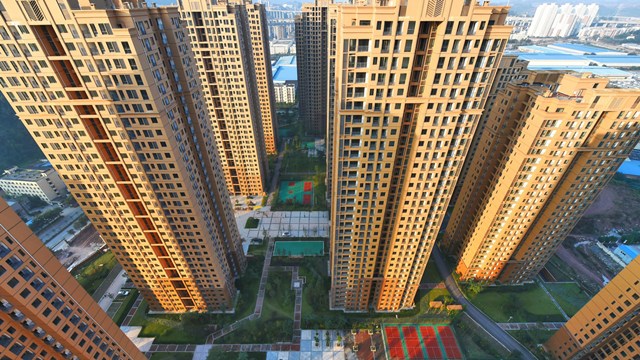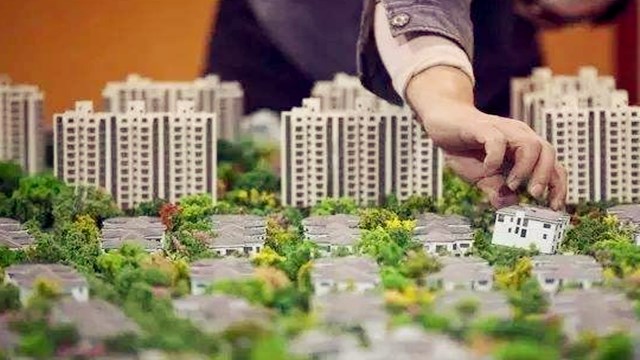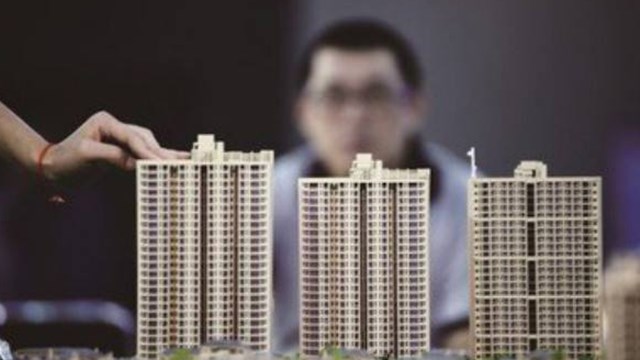CCTV News:Not long ago, the residential sales prices of 70 large and medium-sized cities in April this year showed that the residential prices in most cities rose in different degrees. The land market has always been the foundation of the property market. What is its situation? Come and see the reporter’s observation.
According to the latest data released by the National Bureau of Statistics, from January to April this year, the land acquisition area of real estate development enterprises decreased by 33.8% year-on-year, and the land transaction price decreased by 33.5% year-on-year, both of which were larger than last month.
Zhao Xiuchi, a professor at Capital University of Economics and Business, said: "It shows that this land (market) is developing in a stable direction. It is not as hot as the outside world said. The government’s regulation is still very strong. The government has also stabilized the expectations of the society, including the expectations of developers, and actually stabilized the impulse of developers to take land."

The most concerned about the land market is the residential market. According to relevant statistics, from January to April this year, a total of 290 million square meters of residential land was launched in 300 cities across the country, which was basically the same as the same period last year; The turnover was 240 million square meters, down about 5% year-on-year.
Huang Yu, executive vice president of China Index Academy, said: "People will not blindly take land, and we also know that the future development of real estate enterprises, whether from the market level or from the management level, will have higher and higher requirements. Generally speaking, everyone is still relatively cautious in taking land."
Experts said that the land market continued to be regulated last year, and some enterprises took less land. Since the first quarter of this year, the pace of pushing land in cities has also slowed down, and the overall supply and demand of the land market have declined. Especially in the context of stricter regulation and tighter financial environment, there will be no major fluctuations in the national land market.
Some hot cities have obviously warmed up.
Although there is no big fluctuation in the national land market, the reporter found that since March this year, the land market in some hot cities has obviously warmed up. For example, there have been active land transactions in Hefei and Nanjing.
On April 25th and 26th, Hefei launched more than 20 plots with a total starting price of about 11.174 billion yuan. At the auction site, more than 70 housing enterprises participated, and after fierce bidding, the total turnover reached more than 21 billion yuan.
On April 30th, 8 plots were put up in Nanjing, which attracted more than 60 real estate enterprises to participate in the auction. In the end, all of them were sold, and the transaction amount reached more than 7 billion yuan. In addition to Hefei and Nanjing, the recent floor prices of Chengdu Jinjiang plot, Changzhou Zhonglou plot and Wuxi Xinwu plot are far higher than the highest level in the original region.

Liu Hongyu, director of Tsinghua University Real Estate Research Institute, said: "Then the overall market is not like the scene where we said that there was fierce competition in the past, nor is it that every city is blooming everywhere. In fact, it is in individual cities and some high-quality plots that there will be such competition, so it is a special phenomenon. "
In response to the warming of the market, the local government immediately issued relevant policies to cool down the land market. Hefei issued the "Announcement on Further Defining the Qualification Examination for Bidding", which tightened the land bidding rules and made it clear that affiliated companies were not allowed to sign up for bidding for the same piece of land. Nanjing has also adjusted the scale of land supply this year in a timely manner. In 2019, the city plans to increase the land sold to 900 hectares, including 620 hectares of residential land. In the second quarter, Nanjing plans to list 32 key plots, and 82 plots will be listed in the second half of the year.
Zhao Xiuchi, a professor at Capital University of Economics and Business, said: "The government has continuously introduced a series of such regulatory policies, which actually shows the people that the government is determined to regulate and control. These measures play a role in ensuring the three stabilities required by the Ministry of Housing and Urban-Rural Development, that is, stabilizing land prices and housing prices and stabilizing expectations. Land price is a cost of housing prices. If land prices keep rising, housing prices will go up, and housing prices will rise too fast. Everyone will use housing as an investment demand to speculate in real estate, so stabilizing land prices can stabilize housing prices. "
Expert: The land market will develop steadily.
Regarding the future market trend, Liu Hongyu, director of Tsinghua University Real Estate Research Institute, said in an interview with CCTV that the domestic land market will be in a steady development trend.
Liu Hongyu said that "stable land prices, stable housing prices and stable expectations" will be the main tone of real estate market regulation in the future. In particular, the "one city, one policy" property market regulation is more and more deeply rooted in the hearts of the people, and each city should adjust in time according to its own situation. For cities with excessive water in the real estate market, the regulation policy should intervene in time.

Liu Hongyu also suggested that in the next step, all localities should strengthen supervision over land supply, promote the development of existing land to form actual supply, and at the same time strengthen communication, coordination and information sharing among relevant departments, and strengthen supervision and overall planning.
[News link] The state has continuously introduced measures to stabilize the real estate market.
In fact, in order to stabilize the domestic land market and the whole real estate market, both the central and local governments have successively issued a series of policies and measures.
At the central level, in April this year, the Ministry of Natural Resources re-emphasized the "five categories" of control targets for residential land supply. Among them, if the digestive cycle is from 12 months to 6 months, the land supply should be increased; For those less than 6 months, the land supply should be significantly increased and accelerated.
In mid-May, the People’s Bank of China stated that it would continue to strictly follow the positioning of "houses are for living, not for speculation" and the goals of "stabilizing land prices, housing prices and expectations", promote the establishment of a long-term mechanism for the stable and healthy development of the real estate market, curb excessive liquidity flowing to real estate, and promote the formation of a virtuous circle between finance and real estate.
At the local level, the leading model of "one city, one policy" has made the policy adjustment more precise. For example, Zhengzhou, Harbin and other cities have relaxed the provisions on the deposit of provident fund and the amount of housing loans; Some cities such as Henan and Guizhou continue to strengthen the supervision of the real estate market and rectify market chaos.
关于作者